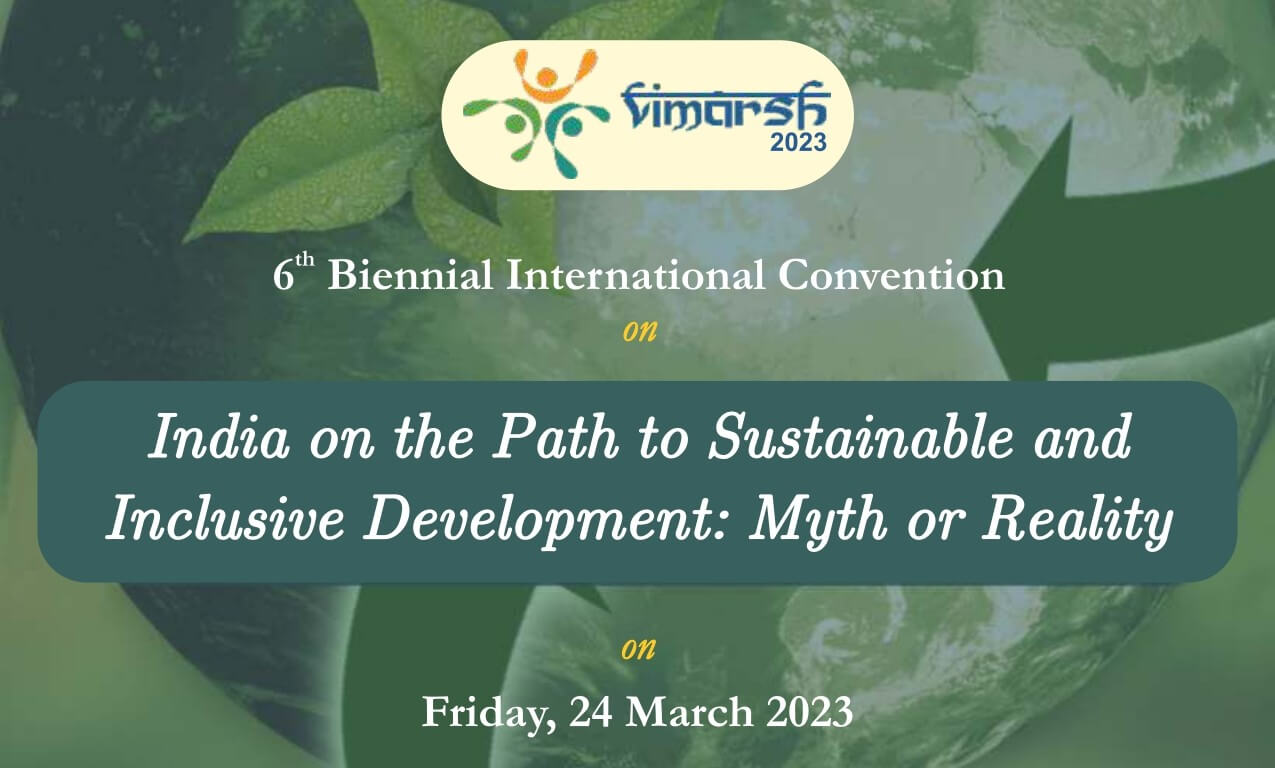
Sri Guru Gobind Singh College of Commerce, founded in 1984 is a premier institute of the University of Delhi specializing in Commerce, Economics, Business Studies, and Computer Science. It has been recently accredited with an ‘A++’ grade by National Assessment and Accreditation Council. The College has meticulously worked its way to develop future leaders in business,government, and academia by offering excellence in education and imparting training. It regularly organizes Seminars,Conferences,Workshops,and Faculty Development Programmes which contribute to the holistic pursuit of education in terms of inquisitive research orientation,analytical rigor,and quantitative skill enhancement of both the student and teacher fraternity. Further,to promote empirical research,it publishes anannual peer-reviewed research journal,‘The Journal of Business Thought’, indexed by UGC, JGate, and i- Scholar.
To keep abreast of recent developments and encourage research,the College organizes Biennial Conferences and Conventions on contemporary economic and social issues. These events have always been graced by the presence of several noted luminaries, economists, academicians, researchers, journalists, and political leaders in the past. In April 2021,the College successfully conducted its 5th Biennial International Convention on the topic,‘The Financial Ecosystem: Disruptions and The Way Forward.’ Buoyed by its success andenthusiastic response,the 6th Biennial International Conference was conducted in March 2022 on the same topic in association with the Department of Commerce, University of Delhi. Taking forward the legacy, the College is now organizing its 6th Biennial International Convention on the topic ‘India on the Path to Sustainable and Inclusive Development: Mythor Reality'.
Sustainable and inclusive development is a megatrend of contemporary times. India’s growth record has been robust and promising, but at the same time, challenging. A comprehensive outlook of development brings together extremely varied but interdependent notions of environmental protection, social inclusion, and welfare maximization.
The world economies are working their way to a Green Economy, one which results in improved human well-being and social equity, while significantly reducing environmental risks and ecological scarcities. India highlighted the need for creating LiFE (Lifestyles for Environment) and climate actions to meet the Nationally Determined Contributions (NDC) targets which require financial, technological, and capacity-building support from developed countries at COP27.
Environment concerns, in turn, call for the use of new theories and techniques that bridge the gap between finance and sustainability. Green Finance has to charter its way by encouraging energy-efficient investments and discouraging the exploitation of fossil fuels. This further calls for green and sustainable accounting to measure, analyze and report companies’ social and environmental impacts. After all, what gets measured, is easy to be managed!
At the same time, increasing dynamics, complexities, and digital transformation of society and markets pose an ardent need to innovate Sustainable Business Models(SBMs). These models should be able to create, deliver and capture value for all its stakeholders without depleting the natural, social and economic capital. SBMs are inclusive of both sustainable accounting practices and socially responsible investment (SRI), which are essential for information on ESG (Environment, Social, and Governance).
It also incorporates green and sustainable marketing, as a contemporary business trend and one which can identify best practices such as the use of sustainable advertising media, eco- labels, and sustainable advertising/packaging materials. It helps to retrieve marketing’s lost esteem in the eyes of the consumers, and also tries to minimize the “green gap”.
Conclusively, what we need to dwell upon is the need to expand the radical dichotomy of growth to include new categorizations that can better capture the essence of innovation in the new economy for a sustainable and inclusive India. There has to be an integrated and realistic approach to working an economic model, which takes due consideration of environmental and social externalities, focuses on resource efficiency, and ecosystems as a building block of the economy.
With India gaining presidency of G20 nations and also proposing crucial and relevant changes at COP 27 this year, it becomes essential for us to bring long-lasting positive changes in our approach to environment, finance, market and the economy. To understand further and critically analyse the trajectory of India’s road towards sustainable and inclusive growth, the present convention aims to seek expert insights on the following thrust areas:
| Patron | ||
| Dr. Jatinder Bir Singh | Principal, Sri Guru Gobind Singh College of Commerce | |
| Convention Convenor | ||
| Prof. Kawal Gill | Department of Commerce | |
| Seminar Committee | ||
| Dr. Paramjeet Kaur Associate Professor, Economics |
Dr. Gurminder Kaur Associate Professor, Commerce |
|
| Dr. Rekha Sharma Associate Professor, Economics |
Prof. Renu Gupta Professor, Commerce |
|
| Dr. Gurleen Kaur Assistant Professor, Economics |
Mr. Vaibhav Puri Assistant Professor, Economics |
|
| Ms. Ushveen Kaur Assistant Professor, Computer Science |
Dr. Megha Ummat Assistant Professor, Computer Science |
|
| Ms. Rasleen Kaur Assistant Professor, Commerce |
Ms. Gurveen Kaur Assistant Professor, Commerce |
|
| Dr. Jappanjyot Kaur Assistant Professor, Commerce |
Dr. Neha Goyal Assistant Professor, Environmental Studies |
|
| Ms. Harpreet Kaur Assistant Professor, Commerce |
Dr. Meenu Chopra Assistant Professor, Management Studies |
|
Geetansh Sharma, Prabhsimar Singh, Meenal Sareen, Gureet Kaur Bedi, Gurneet Kaur